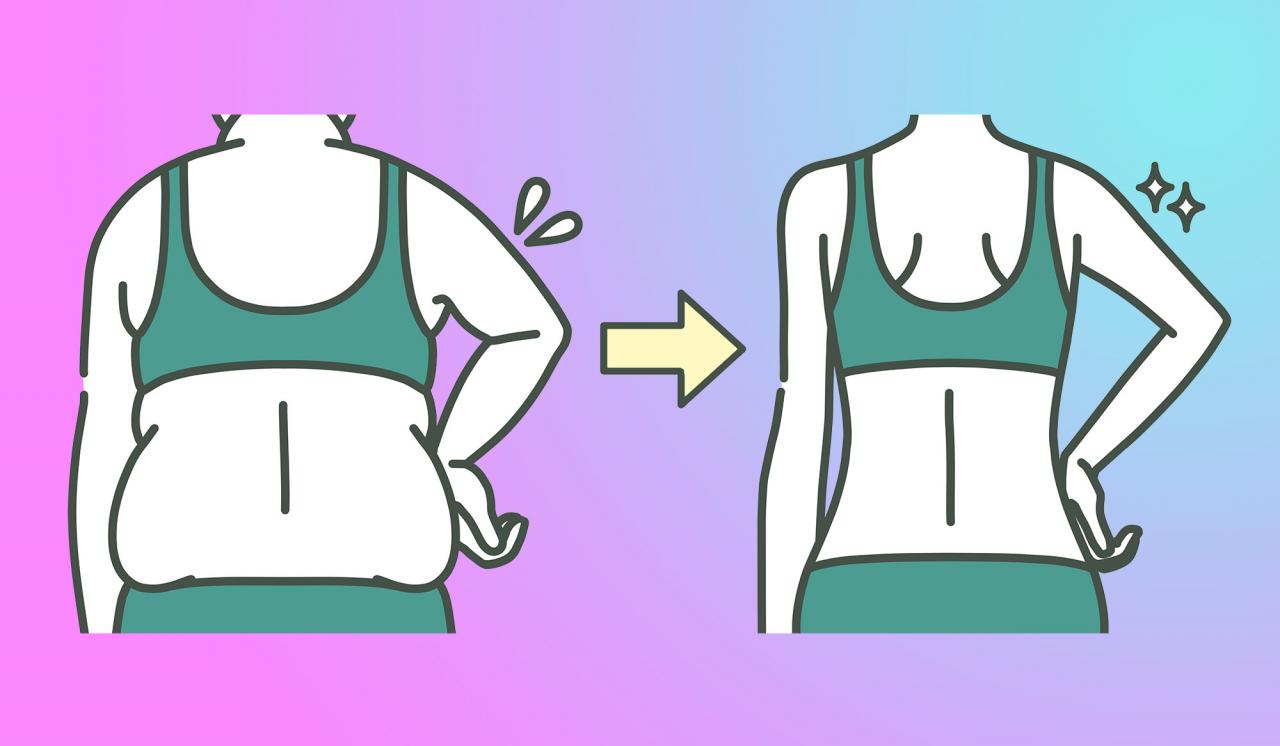
According to a number of scientific recommendations¹, a safe figure for weight loss is 3-4 kg per month. The desire to lose weight as quickly as possible (and get rid of tens of pounds of excess weight in a couple of weeks) threatens with many health risks – from saggy skin to a slowdown in metabolism.
Ultimately, you need to remember that it is not the weight loss itself that is important – but whether you can maintain a stable weight in the future. Unfortunately, statistics show that almost all people who have dramatically lost weight re-gain the lost kg in the border of 3-5 years.
How much can you lose weight in a week?
Let’s start with a mathematical calculation. One kilogram of fat is equivalent to 9000 kcal. Since, on average, 30 minutes of physical exercise is spent from 200 to 400 kcal, it takes an hour and a half of sports to burn 1000 kcal. And for 9000 kcal – more than 13 hours of training.
The recommended calorie intake for most people is between 2000 and 2500 kcal. If a person drastically restricts calorie intake (say, by 50% – up to 1200 kcal), it will take 7 to 9 days to get rid of 9000 excess calories and 1 kg of excess weight.
On the other hand, nutritionists do not tire of reminding that the maximum figure by which it is safe to reduce the daily diet is only 15-20% of the calorie content – or about 300 kcal. With such an energy deficit, 1 kg of excess weight will go away in a month.
But how do people lose 20 kg in a month?
Logically, the conclusion suggests itself that the combination of a sharp decrease in calorie content and the most active sports will ensure rapid weight loss. Let’s say a person will train for 2 hours a day, while at the same time giving up half of the diet.
As a result, about 800-1600 kcal will be burned by exercise, and 1000-1200 kcal – due to diet. A total daily deficit of 2000-3000 kcal will theoretically reduce weight by 10 kg per month.
But the human body is not a calculator. So many dramatic experiments on oneself threaten with problems with hormonal levels and with metabolism in general.
What is the harm of fast weight loss?

The desire to lose weight as quickly as possible can provoke hatred of your reflection in the mirror – which many confuse with motivation. At the same time, the ability to control food intake is also often considered a characteristic of a strong-willed person.
However, the ability to successfully maintain a diet is due not so much to willpower as to the balance of hunger and satiety hormones. For example, the hormone ghrelin produced in the stomach is related to how often a person thinks about food and searches for it.
Among other things, overly active sports with low calorie intake lead to a dramatic decrease in the saturation hormone leptin.
Ghrelin and weight loss
The production of ghrelin appears to be part of a DNA survival strategy. For millennia, humanity has struggled to survive by looking for food – not suffering from an excess of readily available calories or trying to lose weight as quickly as possible.
Reducing daily calorie intake by more than 15-20% of the norm leads to an imbalance of leptin and ghrelin – provoking not only cravings for sweets, but also forcing to treat the diet as something unpleasant, difficult and not suitable for constant use …
How to lose weight correctly?

Correct weight loss is not based at all on calculating how to get rid of excess weight as quickly as possible – but on how to identify and eliminate habits associated with gaining this weight. Exclusively such a strategy will help you not only lose weight, but also maintain a normal weight in the future.
Of particular importance is control over the rate of sugar consumption (including added to food during cooking). On average, Russians consume 3 times more sugar than a healthy diet requires – which is the cause of epidemics of obesity and diabetes.
Safe weight loss strategy
Once again, we recall that a safe figure for losing weight is about 1 kg of excess weight per week. A more drastic weight loss disrupts hormonal balance, leads to loss of muscle mass – and also provokes skin sagging (it is almost impossible to restore its elasticity).
- Avoid refined carbohydrates . Sugar and other fast carbohydrates affect the production of insulin – and the formation of resistance to the hormones of hunger and appetite.
- Avoid gaining excess weight . Abdominal fat accumulated in the inner cavity of the stomach and squeezing the stomach forward is able to produce the hormone leptin, directly affecting appetite.
- Monitor your sleep quality . Lack (or poor quality) of sleep affects not only the production of ghrelin, but also the production of the stress hormone cortisol – as well as cravings for fast carbohydrates.
- Exercise regularly . The increase in muscle mass is associated with an improvement in the body’s ability to use calories for metabolic needs, rather than for gaining excess weight.
- Eat more protein and fiber . A low-carb diet rich in fiber and protein is more effective at maintaining weight than a carb-based diet.
- Use a calorie rotation instead of a diet . If you want to lose weight, alternate between normal and low-carb periods – or practice intermittent fasting

